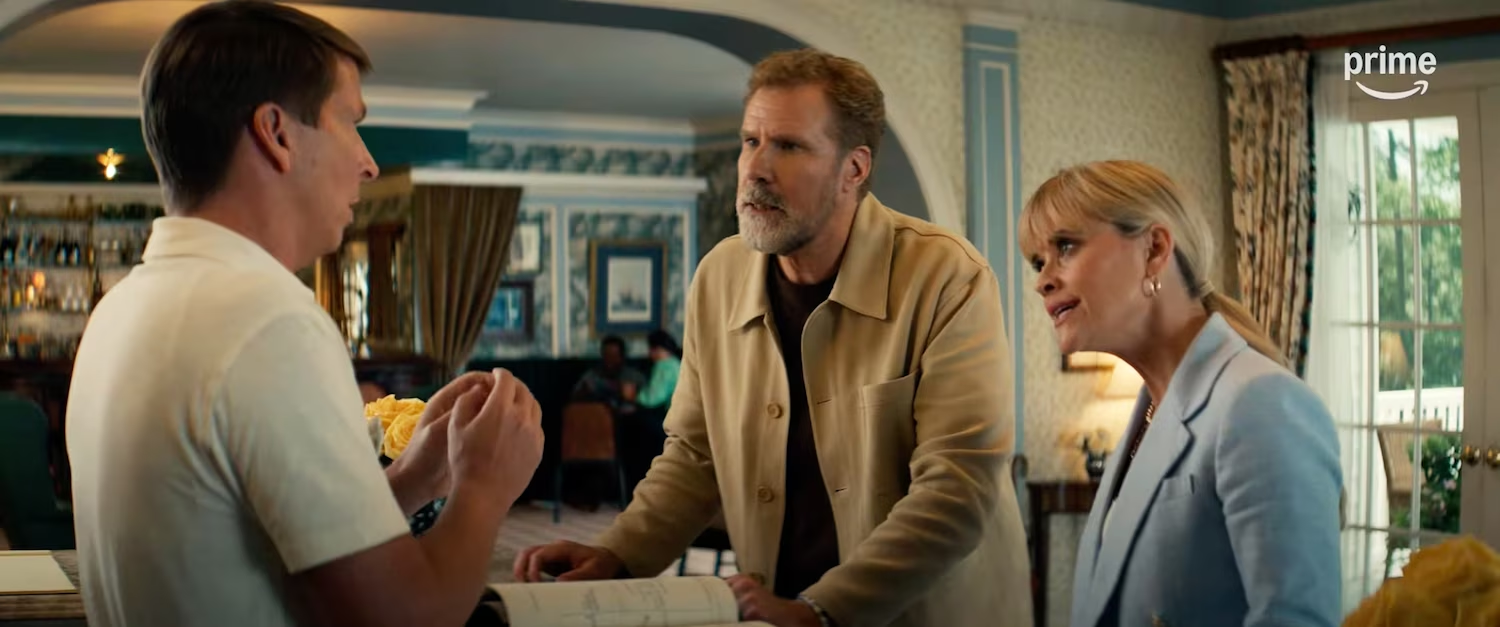Highest 2 Lowest
Posted on August 14, 2025 at 5:22 pm
A-| Lowest Recommended Age: | Mature High Schooler |
| MPAA Rating: | Rated R for brief drug use and language throughout |
| Profanity: | Constant very strong language including the n-word |
| Alcohol/ Drugs: | Alcohol and drug use |
| Violence/ Scariness: | Peril and violence including guns, characters injured |
| Diversity Issues: | Diverse characters |
| Date Released to Theaters: | August 15, 2025 |

Denzel Washington and Spike Lee reunite for the first time since 2006’s “Inside Man” for an elegiac but vibrant story that is complicated and messy. Like life. It is an engrossing crime drama, a family story, a commentary on culture and society, bursting with ideas, masterfully acted by Washington, who just keeps getting better.
The movie begins with Washington’s character, notably called David King, on top of the world. Soaring shots of New York City’s skyline at its most glamorous and inviting are accompanied by Rodgers and Hammerstein’s “Oh, What a Beautiful Morning,” from “Oklahoma.” We end on a spectacular penthouse balcony, with King greeting the day. We will see his Architectural Digest-ready apartment, filled with fine art and elegant furnishings.
It may not be a beautiful day for King. His company is about to be purchased by a conglomerate with no special background or interest in music or in supporting the emerging Black artists who are so important to King. He predicts that what they want to do is dismiss all of the newer talent and monetize the archive by licensing it for commercials. His plan is to raise the money to buy back enough of a share from a board member, Patrick (Michael Potts), so he will be able to veto the deal. Putting this deal together causes him to let down his wife, Pam (Ilfenesh Hadera), who was about to make a large contribution to charity, and break a promise to his son, Trey (Aubrey Joseph), to watch him at a basketball camp led by former Boston Celtic Rick Fox. Trey is disappointed, but happy to meet up at the camp with his best friend, Kyle (Elijah Wright), King’s godson, and the son of widower, ex-con, and King’s chauffeur, Paul Christopher (played by Elijah Wright’s real-life dad).
Then, King gets a call that Trey has been kidnapped for ransom and they are demanding $17,500,000 in Swiss francs. The reason it has to be in francs, not dollars, is clever, like many of the details of the crime, but for some reason this kidnapper makes no effort to stop King from calling the police. The kidnapper also makes another mistake. He mistook Kyle for Trey. Will King continue with plans to take the money he needs to keep his company to pay ransom for someone else’s son?
The way the ransom exchange and subsequent events play out, including a subway train filled with excited Yankees fans and a Puerto Rican Day festival featuring “Do the Right Thing’s” Rosie Perez is tightly constructed. We may think we are in the middle of a gritty first-class thriller, but it turns out there is more. As often happens in Spike Lee movies, the world before us is heightened and the storyline becomes less linear. Is this the story of a crime? Is it about the moral assignment of responsibility? About money? About mistakes? About forgiveness? About risk? About art? About family? All of the above. Like life.
There are winks at the audience, references to Lee’s well-known love of basketball and the Yankees (look for a cheeky sign in the subway car), and a door labeled A24, the name of the film’s studio, to remind us what a personal statement it is. The score by Howard Drossin is arresting but unexpected, a Celtic tone that contrasts with what we might expect for a suspenseful moment.
Washington is utterly mesmerizing as King, crafty, calculating, but essentially a good man, devoted to his wife and son and to music and the people who make it. He knows that what made his company great (there are framed magazine covers with his face on them in his office and references to his many Grammy awards) was his “best ears in the business.” And he knows that the business is not as great as it once was. The supporting cast is superb, with stand-out performances by A$AP Rocky as rapper Yung Felon and Princess Nokia as a young mother. The highlights of this magnificent film, even more than the crime thriller section, are the (mostly) quiet conversations King has with both characters.
Lee and Washington know, as King tells an aspiring singer, that “the hard times will come from the money and the mayhem follows.” They know that “all money isn’t good money” and how to tell the difference. This is a literal masterpiece, based on the term’s origin as work that shows all of the mastery of an experienced creator. It is a crowning achievement by men who have put in the work, learned the lessons over decades, and bring out the best in one another.
Parents should know that this film has extended strong language including many uses of the n-word and a crude and sexist term for a body part. Characters smoke weed and drink alcohol. The story involves a violent crime. Most of the violence occurs off-screen, but there are guns and shooting and characters are injured.
Family discussion: What made King change his mind about paying the ransom? What does he mean about “trying to be practical?” When were the police helpful and when were they not helpful? What does it mean to say “attention is the biggest form of currency,” and do you agree?
If you like this, try: “Inside Man,” “Malcom X,” “Do the Right Thing,” “Chi-Raq,” and “He Got Game”







